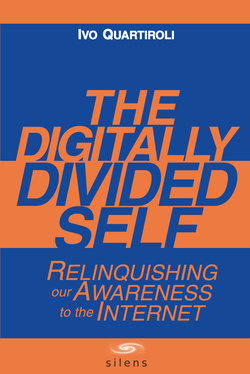Читать книгу The Digitally Divided Self: Relinquishing our Awareness to the Internet - Ivo Ph.D. Quartiroli - Страница 17
На сайте Литреса книга снята с продажи.
Beyond the Mind
ОглавлениеThere are states beyond the mind which can be reached through awareness. There exists a condition of “spiritual enlightenment” which can elevate human beings to the divine and to global Consciousness. Spiritual teachers of every age have pointed to such a state, however difficult it is to communicate through words what is beyond mind.
Words, dual in themselves, are the tools at hand to describe the non-dual state of union with the whole, called spiritual enlightenment, satchitananda (the merging of existence, consciousness and bliss), being a Buddha, God Realization, and Ultimate Understanding.” I have a faint echo of this from the glimpses of higher states my own journey has offered.
But the words of spiritual teachers are the map, not the territory – and my experiences could be no more than delusions. Actually, some teachers say that any experience is not yet that, so a Zen master would probably hit my head with a stick. The truth is that neither I nor anyone has a way to prove the existence of such a state, since every “proof” would stay on the level of the mind itself. All in all, it’s a matter of faith. And even science has its own axioms or postulates, truths which are taken for granted.
The word faith has been associated with the monotheistic religions, with fundamentalism and in opposition to an open quest for the truth. Much blood has been spilled in the name of faith. Faith has been used, as well, to mean not acknowledging scientific truths. I am not talking about that faith.
Where my faith comes from is a mystery. Maybe I was touched by reading, maybe I felt an echo of something larger than the mind or I recognized higher states of being in my spiritual teachers.
If I would add anything more than plain faith to the existence of spiritual enlightenment, then trouble would ensue. For instance, when instead of saying “God exists,” we say “God is goodness,” we are already in a dualistic perspective that can easily slip into “Who doesn’t believe in God is evil.” Also, if the postulate that spiritual enlightenment exists were extended into “I know the only way toward enlightenment,” then we would fall into fundamentalism. The mind wants to pull into its purview even what can never be known by it.
Words are products of the conceptual/dual mind, and nobody can avoid the risk of building structures and dogmas when talking about no-mind. But what’s important is to keep an open-ended attitude at the root of any inquiry, whether scientific or self-inquiry.
